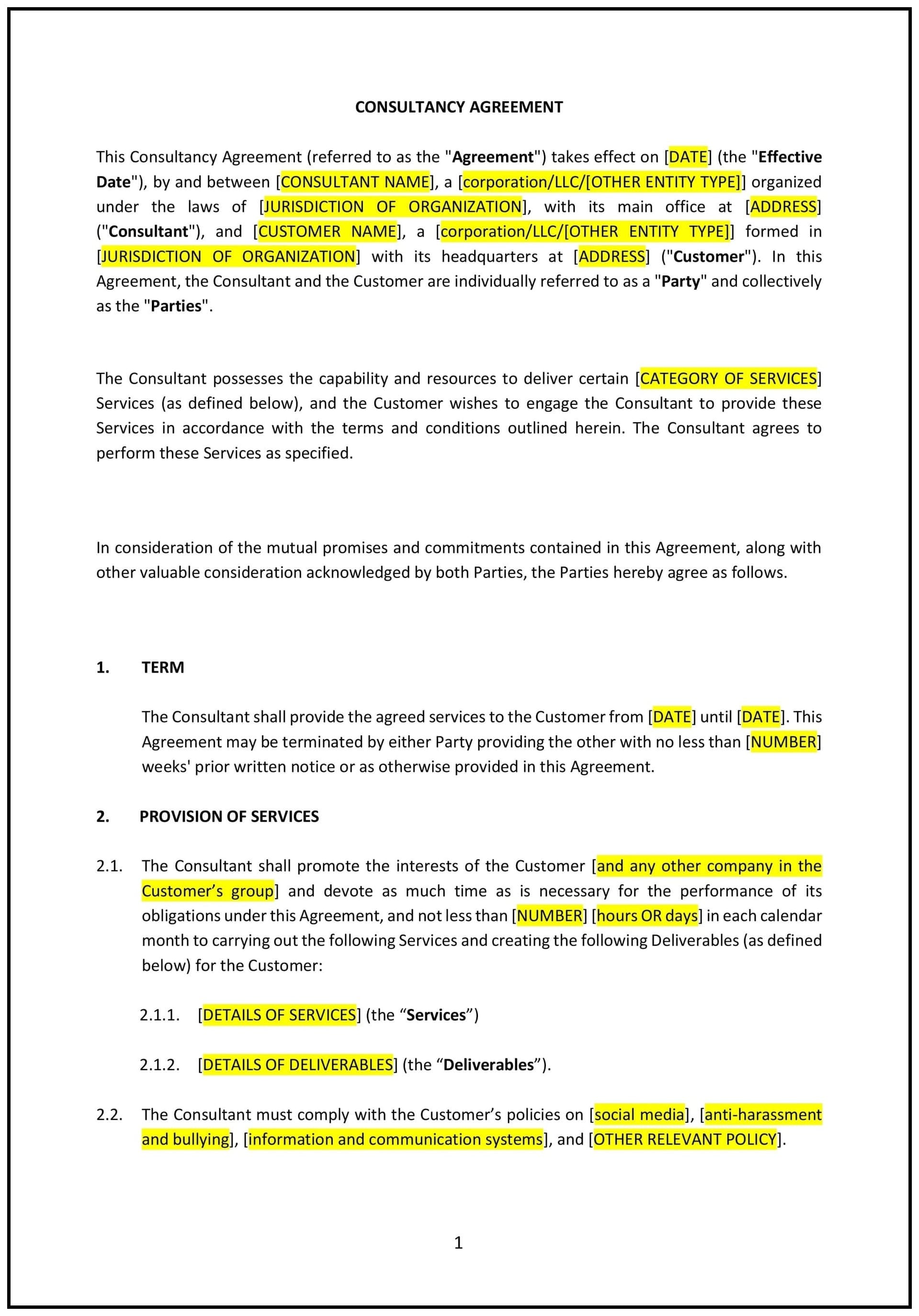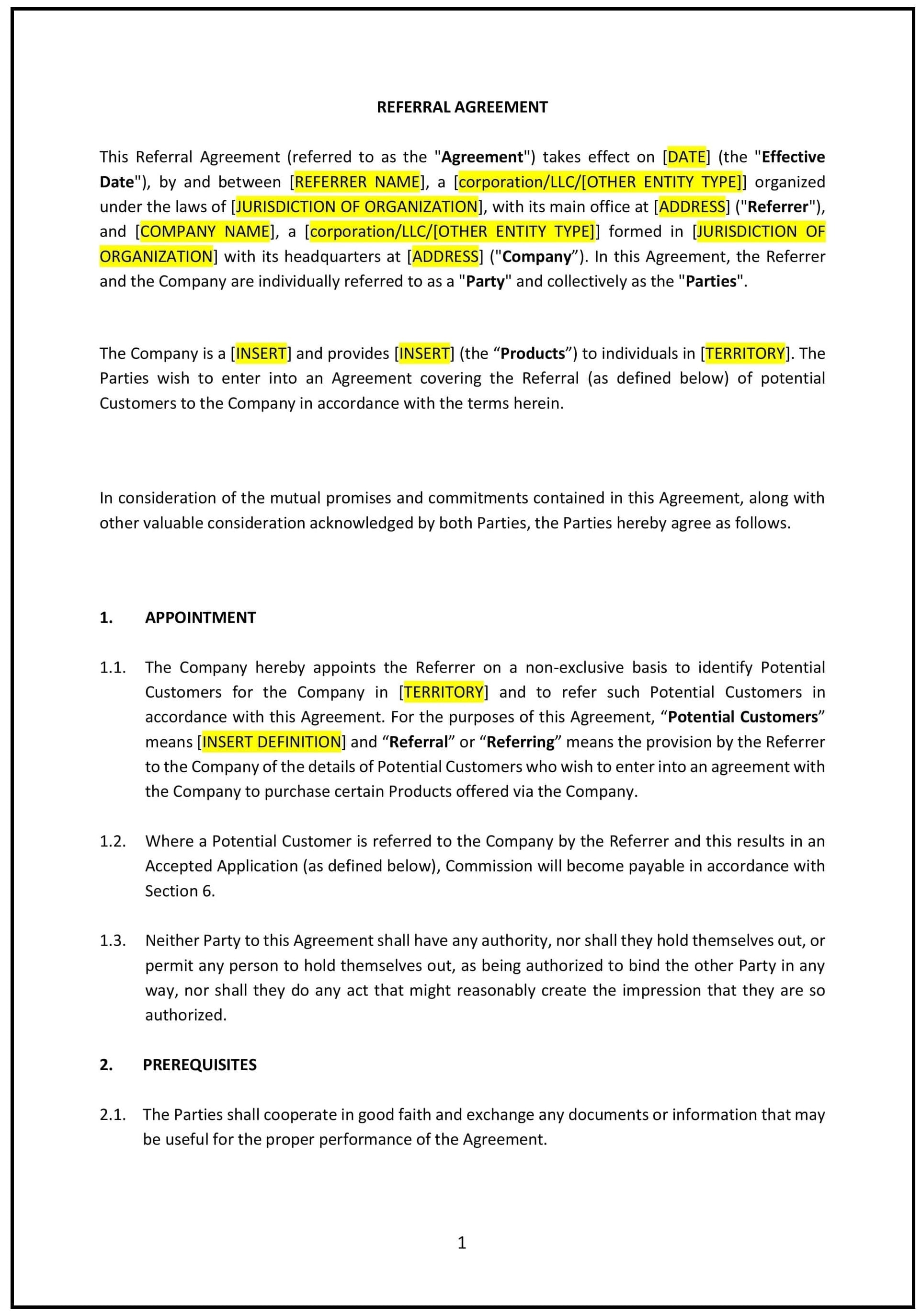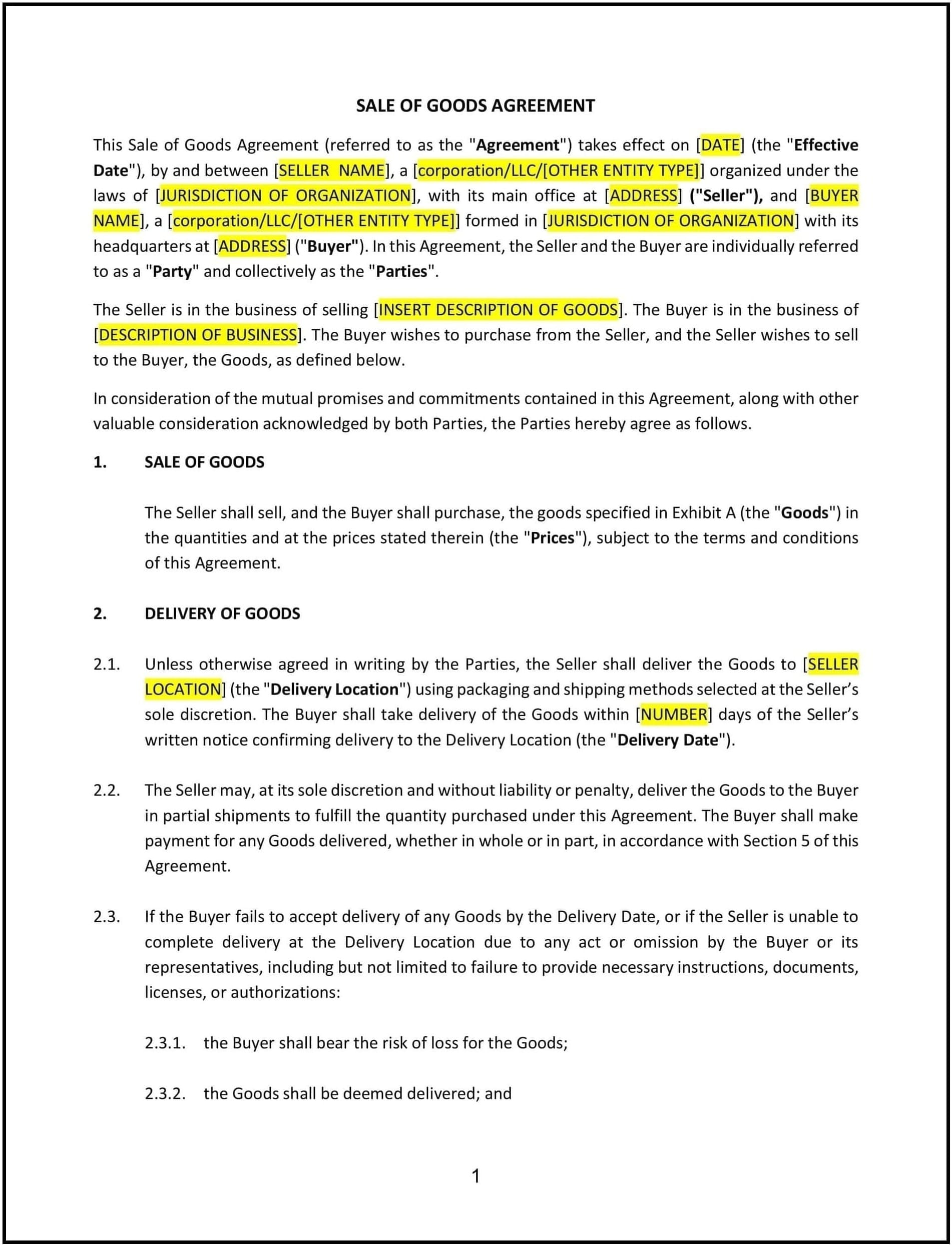Service Level Agreement (SLA) (California): Free template
Service Level Agreement (SLA) (California)
A Service Level Agreement (SLA) is a formal contract that sets clear expectations between a service provider and a client. It outlines what services will be delivered, how performance will be measured, and what happens if those standards aren’t met. For business owners in California, an SLA is more than just a legal document—it’s a tool to build trust with clients, ensure accountability, and protect your business from misunderstandings or disputes.
In California, industries like technology, healthcare, entertainment, and professional services rely heavily on SLAs to maintain high standards of service delivery. For example, a tech startup might use an SLA to guarantee platform uptime for its SaaS product, while a logistics company might define delivery timelines and quality benchmarks. A well-crafted SLA not only helps you meet client expectations but also ensures compliance with California’s strict regulatory environment, including laws like the California Consumer Privacy Act (CCPA).
Think of an SLA as a roadmap for your business relationship. It clarifies what your clients can expect, what you’re responsible for delivering, and how issues will be resolved if something goes wrong. This clarity is especially important in California, where businesses face unique challenges such as stringent consumer protection laws and a competitive market.
Tips for drafting and maintaining a Service Level Agreement (SLA) in California
- Clearly outline what services you’ll provide: Start by describing the services in plain language. Avoid jargon and make sure your clients understand exactly what they’re getting. For example, if you’re offering IT support, specify whether it includes 24/7 help, response times, and resolution deadlines.
- Example: “We guarantee a response to critical issues within 2 hours and resolution within 24 hours.”
- Set measurable performance goals: Define specific metrics to evaluate your service quality. These are called Key Performance Indicators (KPIs). For instance, if you’re running a cloud-based service, you might promise 99.9% uptime. If you’re in logistics, you could commit to delivering packages within 48 hours.
- Tip: Make these goals realistic and achievable to avoid overpromising and underdelivering.
- Explain what happens if you don’t meet the agreed standards: Clients want to know how you’ll make things right if something goes wrong. Include remedies like refunds, credits, or discounts for missed targets.
- Example: “If our platform experiences downtime exceeding 0.1% in a month, we’ll issue a 10% credit on the next invoice.”
- Make sure your SLA follows California laws: California has some of the strictest consumer protection laws in the U.S., including the CCPA, which governs data privacy. Ensure your SLA addresses these requirements, especially if you handle sensitive client information.
- Tip: If you’re unsure about legal compliance, consult a lawyer who specializes in California business law.
- Include a process for resolving disputes: Disagreements happen, even with the best intentions. Your SLA should explain how disputes will be handled—whether through direct negotiation, mediation, or arbitration. Specify that California law will govern the agreement to avoid confusion about jurisdiction.
- Example: “Any disputes will be resolved through mediation in Los Angeles County, California.”
- Keep your SLA up to date: As your business grows or regulations change, your SLA may need adjustments. For example, if you introduce new services or adopt new technologies, update the agreement to reflect these changes. Regularly reviewing your SLA ensures it remains relevant and enforceable.
- Tip: Set a reminder to review your SLA annually or whenever there’s a major change in your business operations.
Frequently asked questions (FAQs)
Q: What should I include in my Service Level Agreement (SLA) in California?
A: Your SLA should include a clear description of the services, measurable performance goals (like uptime guarantees or response times), remedies for missed targets (such as credits or refunds), compliance with California laws (like the CCPA), and a process for resolving disputes. It’s also helpful to specify how performance will be tracked and reported.
Q: How does California law affect my SLA?
A: California law prioritizes transparency and fairness in contracts. Ambiguities in your SLA could be interpreted against you, so it’s crucial to be clear and specific. Additionally, California has strict consumer protection laws, so ensure your SLA complies with regulations like the CCPA if you handle client data.
Q: Can I limit my liability in an SLA?
A: Yes, you can include clauses that limit your liability for issues like service outages or delays. However, these clauses must be reasonable, clearly stated, and compliant with California contract laws. For example, you can’t exclude liability for gross negligence or willful misconduct.
Q: Which industries in California commonly use SLAs?
A: Industries like technology (SaaS platforms, IT services), healthcare (telemedicine, patient portals), logistics (delivery services), and entertainment (streaming platforms) frequently use SLAs to set clear expectations and maintain high service standards.
Q: How can I make sure my SLA aligns with California laws?
A: Ensure your SLA complies with consumer protection laws, data privacy regulations, and other relevant statutes. Regularly updating your SLA to reflect changes in laws or your business operations is also essential.
This article contains general legal information and does not contain legal advice. Cobrief is not a law firm or a substitute for an attorney or law firm. The law is complex and changes often. For legal advice, please ask a lawyer.


